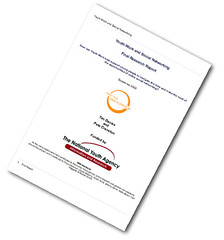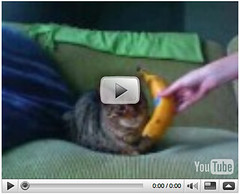Today saw the launch of the UK Council on Child Internet Safety (UKCCIS) – making the launch of the Youth Work and Social Networking Final Report even more timely.
The BBC Article about the Council, set up to implement a recommendation from the Byron review, describes it’s work as:
to teach children about web dangers, target harmful net content and establish a code of conduct for sites featuring material uploaded by users.
Whilst the launch of the UKCCIS as a hub for action is a step forward – the big challenge ahead of it is to recognise the value of informal education and youth work approaches in contributing to the safety of young people online, and to adopt different approaches to promoting the safety of children and of young people.
Understanding informal education:
At the launch of the UKCCIS Gordon Brown said:
“The challenge for us is to make sure young people can use the internet safely and do so with the minimum of restrictions but the maximum of opportunities
But just as we would not allow them to go out unsupervised in playgrounds or in youth clubs or in swimming pools, so we must put in place the measures we need to keep our children safe online†(Source BBC News)
It’s crucial to remember however, that our responses to risks from playgrounds, youth clubs or swimming pools do not rely on education campaigns and the safe design of the spaces alone – but also from the skills of professionals who can support young people and who can respond to their needs and issues at the times the needs arise.
Our work on the Youth Work and Social Networking report suggests that investing in the skills of the staff who support young people in informal education contexts has a significant amount to offer in equipping young people to navigate the risks of the web, and to make the most of the opportunities that exist.
Our broad thesis is that whilst awareness campaigns provide the foundation for behaviour change – it is the supportive interventions and opportunities to explore risk issues and sensible peer norms within friendship groups and with responsible adults which can contribute most to increasing young people’s resources and resiliency in the online environment.
Children AND young people
It’s also crucial that the UKCCIS recognises that the issues for the safety of children, and the safety of young people (adolescents) are distinct and require different responses and approaches.
Negotiated not imposed
One of the most interesting part of the Youth Work and Social Networking research was the consultation day we held with young people in Devon over how they wanted safety policies to work.
It’s key for UKCCIS to find the right participation methods to ensure that codes of conduct for websites with user generated content are designed with the impartial input of young people – and that solutions are negotiated with the young users of sites and not imposed by industry.
Where next:
UKCCIS don’t have a web presence yet – but over the coming months it will be key for informal educational professionals to demonstrate how they can support young people to navigate risk. As Josie Fraser notes, UKCCIS still falls short of a coherent digital strategy for the UK – promoting digital media literacy across formal and informal education settings – but it can offer us an opportunity space to move forward with the important work of ensuring that young people are equipped to get the most of emerging and everyday digital technologies
Update: DowningStreet have just put up a video of the launch.





 I’ve pitched a
I’ve pitched a 

 I've just been interviewed for an article about how blogging can be used to promote positive activities. Using blogging as part of promoting youth work was only one part of one of the
I've just been interviewed for an article about how blogging can be used to promote positive activities. Using blogging as part of promoting youth work was only one part of one of the  I've tried to keep the plethora of reflections and shared bits and pieces from the Youth Work and Social Networking project over on
I've tried to keep the plethora of reflections and shared bits and pieces from the Youth Work and Social Networking project over on